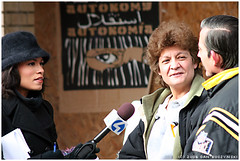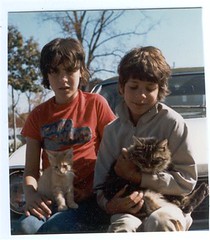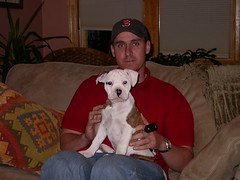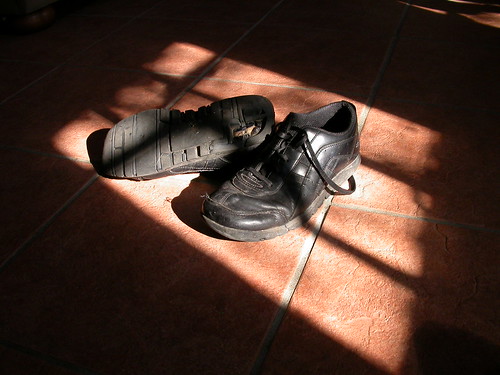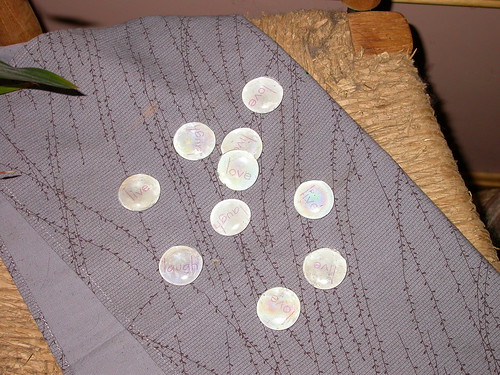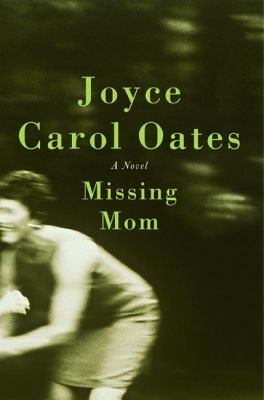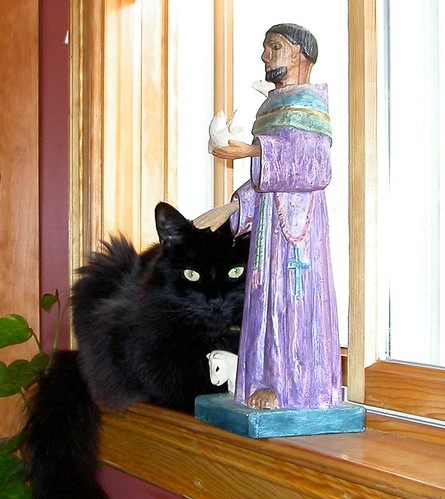
Several years ago, a co-worker of mine appointed herself the personal St. Francis to a horde of feral cats who lived in an alley in the town where we worked. Though she was frequently sullen and irascible with human beings, her kindness to her selected brood knew no limits.
Even if we didn't get out of work until one in the morning, or the weather dipped below zero, she faithfully collected scraps from the hotel, bags of chicken or prime rib, and headed to the grim alley way where her mangy cats lurked. It often involved costly taxi rides since she didn't own a car.
Though truthfully, I didn't like her much, I could never pass the woman by when I saw her standing alone outside the hotel, her ubiquitous smoke in one hand, a bag of garbage in the other, as she waited for her cab.
"If you call off your taxi, I'll give you a ride," I'd say reluctantly. When we got to the alley, I'd wait in the car as the cats gathered around her, caressing her with their hunger. While they ate, she would lean against a wall and watch them. All I could see was the tiny flame of her cigarette.
In the end, it was those tiny flames that got her. She was diagnosed with inoperable lung cancer. Around the same time, the cats received a similarly bleak sentence. The local merchants had complained about their growing numbers, and had demanded the town exterminate them.
My co-worker, who could not save her own life, had found her mission. She would find homes for all her wild felines. She walked to town hall and petitioned for time. Then, begging rides to the offices of various veterinarians and animal protection groups, she hung posters and pleaded for help in her cause. She would not go away. It seemed like an impossible task to me--her frequent and increasingly begrudging chauffeur. There were more than forty cats, and they had been feral all their lives. The vets warned that they probably carried disease.
Several times she tried to cajole me into taking one of the kittens, but for once in my life, I was firm. I already had a house full of kids and three animals. Besides, my husband was adamantly against it.
Everytime I said no, she turned away from me angrily, lit a cigarette, and blew smoke and venom out my car window.
I responded in kind. I was wasting my time and gas driving her around on her crazy mission, and this was the thanks I got? And she knew I did
not allow smoking in my car.
Ignoring me skillfully, she puffed her butt right down to the end, then tossed it out the window. By the time I dropped her off in her front of the dilapidated rooming house where she lived, we were both staring straight ahead in cold fury.
"You'll have to get yourself another--" I began, but never got a chance to finish before she was out of the car and walking toward her door. Watching her, I couldn't help noticing how thin and solitary she was or feeling ashamed of my anger.
In the end, after spending most of her savings to make sure that each animal got its shots and was spayed or neutered, the cats' advocate found homes for over thirty of them. Then, when she had nearly exhausted all her resources, a generous farmer from a nearby island agreed to take the last ten.
Why she went back to the alley the last time, I'm not sure. Maybe she missed the animals who had waited for her so avidly every day. It was clear that she was getting sicker, and she was alarmingly friendless and alone. In any case, she returned to find one stray who had been left behind.
The next day she called me. The landlady in the rooming house would not allow the animal inside. I had to take it; there was no one else.
"I can't have another cat," I repeated, already feeling annoyed. "How many times do I have to tell you that?"
"He's sitting under a bush outside my house when you're ready to pick him up," she said, and hung up on me.
I was incensed, and I
wasn't taking that cat. How had I ever gotten involved with this woman? Why did I
always get involved?
A few days later, I was heading to the grocery store with my fourteen-year-old daughter. I hadn't talked to my sick co-worker since she had hung up on me, and I was beginning to feel the familiar needles of guilt. Did she need food? Or more likely, the cigarettes that were both her killer and her last comfort?
Abruptly, I turned onto her street. My daughter remained in the car while I went upstairs. It took several minutes for the sick woman to answer the door, but finally she called out a raspy and impatient "come in then" from her bed. When I entered the room, I saw her impending death clearly for the first time. And what was worse, in her eyes was the dark acknowledgment that she saw it, too.
By the time I came down, my daughter was crouched beside the infamous bush, trying to coax the ugliest cat I'd ever seen to come out. He was emaciated, his fur was matted and dull. his feet huge; and in place of normal cat teeth, small fangs protruded.
"I'm not taking that cat?" I said weakly.
"I'm going to call him Jasper," my daughter said, glowing with new love. "He's
so beautiful."
Beautiful? That thing? I thought. But later that night, my husband and I returned with a box and took the cat home.
Jasper. We've always had a cat or two around the house, but never have we had one more loving or gentle than the one we pulled out of the bush that night. And yes, he's beautiful, too.
Now he frequently keeps me company in the window when I write. I took this picture the other day as he nestled beside my Guatemalan Francis, but I didn't see the hand resting on top of his head until I put it up on my computer.
